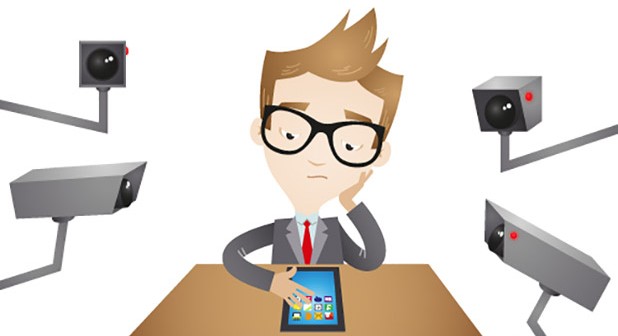Every employee deserves to know their rights at work. When you know what the law says about your job, you protect yourself from unfair treatment, unsafe conditions, and unpaid wages. New Jersey built its employment laws to protect workers like you.
These laws set clear rules for how employers must treat their employees. They prevent discrimination, wage theft, and retaliation when you speak up. They also require employers to maintain safe working conditions and pay you fairly.
In this guide, you’ll learn about your key rights under employment law in NJ. We’ll cover protections against discrimination, fair pay, workplace safety, whistleblower safeguards, family leave, and more. Whether you’re starting a new job or facing problems at work, knowing these rights can help you stand up for yourself.
Right to a Discrimination-Free Workplace
You have the right to work without facing discrimination or harassment. Federal laws protect you from this, but New Jersey also has the Law Against Discrimination (LAD). The NJ LAD affords you more protections than the federal laws. It protects employees from unfair treatment based on race, religion, gender, age, disability, sexual orientation, marital status, and more. This state law applies to hiring, promotions, pay, and termination decisions. It also protects you from harassment by coworkers, supervisors, or even customers. If your employer knows about workplace harassment and doesn’t act, they might be responsible.
Let’s say someone’s passed over for promotions despite having superior qualifications. If they overhear their manager saying they want a “younger face” for the team, that’s likely age discrimination. Or, if a coworker makes repeated offensive jokes about someone’s religion, and management does nothing, they could be responsible.
If you believe you’ve been discriminated against, you can file a complaint with the New Jersey Division on Civil Rights (DCR) within 180 days. Discrimination complaints may also be filed under federal law with the U.S. Equal Employment Opportunity Commission (EEOC), but deadlines and procedures differ.
Right to Equal Pay
You have the right to receive equal pay for equal work. The Diane B. Allen Equal Pay Act strengthens New Jersey’s protections against wage discrimination. It requires employers to pay employees the same rate for substantially similar work, regardless of gender, race, or other protected categories. This state law applies to public and private employers. It covers all forms of compensation, including salary, bonuses, and benefits. In some cases, federal law also applies through the Equal Pay Act of 1963.
Imagine male and female employees perform the same job with similar levels of experience and skill, but the male employee gets paid more. This could be a violation of the Equal Pay Act.
If you believe you’re being paid unfairly, you can file a complaint with the DCR. You also have the right to take legal action to recover unpaid wages and damages.
Right to Safe and Healthy Working Conditions
You have the right to a workplace that is safe and free from serious hazards. Federal protections under the Occupational Safety and Health Act (OSH Act) need employers to maintain safe and healthy working conditions. New Jersey also enforces workplace safety standards at the state level.
Your employer must provide proper training, safety equipment, and clear procedures to prevent accidents. They must follow health and safety standards, especially if your work involves hazardous materials or equipment. New Jersey has extra protections for specific industries. For example, the Industrial Home Work Law regulates work performed at home under unsafe conditions. The Seasonal Farm Labor Act ensures that farm workers have access to clean drinking water, toilets, and safe housing.
If an employer requires employees to deal with toxic chemicals without proper safety precautions, that’s a safety violation.
If you believe your workplace is unsafe, you can file a complaint with the Occupational Safety and Health Administration (OSHA) or the New Jersey Department of Labor. Your employer cannot retaliate against you for reporting unsafe conditions.
Right to Fair Wages and Timely Payment
New Jersey’s wage and hour laws guarantee your right to fair pay. The state minimum wage is currently $15.49 per hour, though this amount may change yearly. Most workers are also entitled to overtime—one and a half times their regular rate—when they work more than 40 hours in a week. State law requires employers to pay you on a regular payday, either twice a month or monthly for certain types of jobs. Employers cannot withhold wages or make unauthorized deductions from your paycheck. Additionally, New Jersey’s Child Labor Law limits the types of jobs and hours that minors can work. This protects them from unsafe or unfair conditions.
Let’s say employer pays their employees late or fails to pay them for all the hours they worked. This is a violation of wage and hour laws.
If your employer fails to pay you, you can file a wage claim with the New Jersey Department of Labor. Federal protections under the Fair Labor Standards Act (FLSA) may also apply to minimum wage and overtime violations.
Right to Notice of Mass Layoffs and Closures
You have the right to advance notice if your employer plans a mass layoff, business closure, or relocation. The Millville Dallas Airmotive Plant Job Loss Notification Act—also called the NJ WARN Law—requires employers with 100 or more full-time employees to give at least 60 days’ written notice before any of these actions. This state law is like the federal Worker Adjustment and Retraining Notification (WARN) Act but often has stricter requirements. It also requires severance pay if an employer fails to provide proper notice.
Imagine a company with 150 employees closes its doors without giving any prior warning. That’s a violation of the NJ WARN Act.
If you lose your job without the required notice, employment law in NJ may entitle you to compensation.
Protection Against Retaliation and Whistleblower Safeguards
You have the right to report illegal or unsafe practices at work without fear of retaliation. The Conscientious Employee Protection Act (CEPA) protects whistleblowers in New Jersey. It prohibits employers from punishing employees who report illegal activity, fraud, unsafe conditions, or violations of public policy. Federal whistleblower protections may also apply, but CEPA offers broad state-level safeguards.
If an employee reports their employer for dumping hazardous waste illegally, and they’re demoted or fired, that’s illegal retaliation.
If you believe your employer retaliated against you after you reported wrongdoing, you can file a complaint with the New Jersey Department of Labor. Most retaliation claims must be filed within one year of the violation.
Right to Family and Medical Leave
Besides federal protections under the Family and Medical Leave Act (FMLA), the New Jersey Family Leave Act (NJFLA) also covers New Jersey employees. Under the NJFLA, eligible employees can take up to 12 weeks of unpaid, job-protected leave over a 24-month period to care for a newborn or newly adopted child, a seriously ill family member, or in certain situations related to a family member’s military service.
This is in addition to leave protections under the FMLA, which provides up to 12 weeks of unpaid leave in a 12-month period for your own serious health condition or to care for a family member. To qualify under either law, you must meet certain work history and employer size requirements.
More Wage and Privacy Protections
Wage Collection and Recovery
If your employer refuses to pay wages they owe you, New Jersey law gives you the right to file a wage claim with the Department of Labor. The Wage Collection Law allows you to recover unpaid wages, penalties, and even liquidated damages in some cases. You usually have six years to file a claim for unpaid wages under state law. Claims under the federal Fair Labor Standards Act must usually be filed within two to three years.
Right to Privacy and Transparency
New Jersey law limits how employers can use electronic communication devices to track or share your personal information without your consent. Additionally, employers can’t charge you for required medical exams, background checks, or similar pre-employment screenings. Employers must also notify employees in writing of any changes to health benefits and certain employment terms.
Key Deadlines for Filing Complaints
To protect your rights under employment law NJ, it’s important to act fast. Here are some common deadlines:
- Discrimination Complaints (LAD): 180 days from the incident to file with the Division on Civil Rights.
- Wage Claims: Up to six years under New Jersey law; two to three years under federal law.
- Retaliation or Whistleblower Claims (CEPA): One year from the retaliatory action.
- Mass Layoff Violations (NJ WARN): No specific filing deadline, but make your claims ASAP.
Missing a deadline could affect your ability to recover damages or seek legal remedies.
Employment Law NJ FAQs
How do I know if I qualify for family leave in New Jersey?
To qualify for NJFLA leave, you generally need to have worked for your employer for at least one year, and for at least 1,000 base hours during the previous 12 months. Your employer also must have 30 or more employees.
What should I do if my employer is withholding my wages?
If your employer is withholding wages, you should first document all the hours worked and the wages owed. Then, you can file a wage claim with the New Jersey Department of Labor. It is also recommended to speak to a lawyer.
Can my employer fire me for reporting unsafe working conditions?
No, your employer cannot legally retaliate against you for reporting unsafe working conditions. You are protected by both federal and state laws, including CEPA, which safeguards whistleblowers.
What to Do When Your Workplace Rights Are Violated
Understanding your rights at work is only the first step. If you believe your rights have been violated, start by raising the issue with your employer or HR department. This can resolve many issues. If it doesn’t—or if the violation is serious—you can file a formal complaint with the New Jersey Division on Civil Rights, the Department of Labor, or the appropriate federal agency.
You may also want to speak with an employment law attorney to explore your options. Whether you’re fighting for fair pay, workplace safety, or protection against discrimination, employment law in NJ is there to support you. Knowing your rights empowers you to take action and hold employers accountable.
Resources:
https://www.nj.gov/labor/assets/PDFs/WARN/LayoffNotificationForm2_31208REVDD6.pdf
https://www.nj.gov/labor/wageandhour/assets/PDFs/63_-1.pdf
https://www.nj.gov/labor/wageandhour/tools-resources/laws/seasonalfarmlaboract.shtml
https://www.nj.gov/labor/wageandhour/tools-resources/laws/industrialhomeworklaw.shtml
https://www.nj.gov/labor/wageandhour/tools-resources/equal-pay/
https://www.nj.gov/labor/wageandhour/tools-resources/laws/selectedstatelaborlaws.shtml#6B-11




